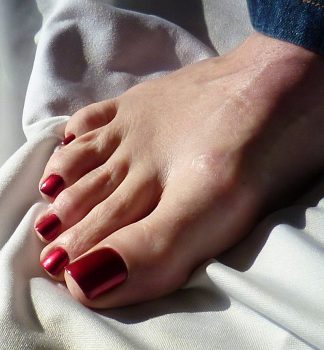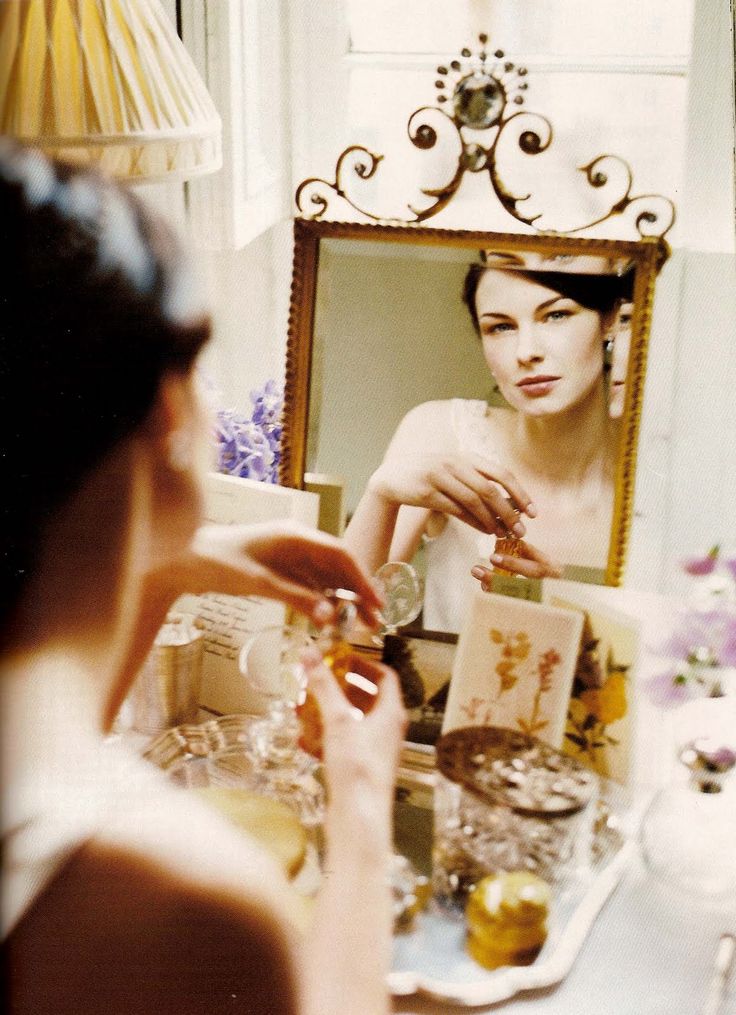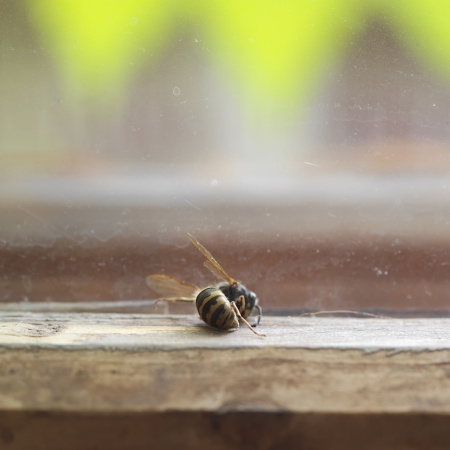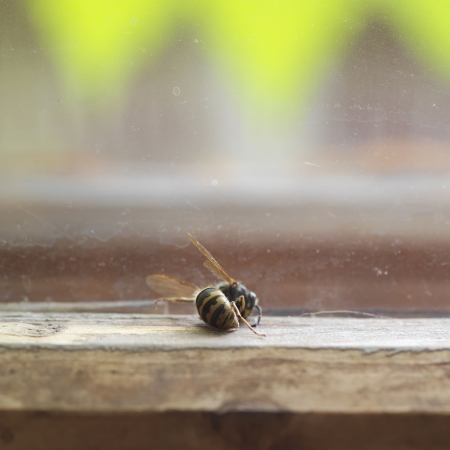
Her trench coat was spattered with new and old raindrops, and the cuffs of her jeans stained with mud when she entered the café. Looking around for a table, she noticed that even seats along the bar were full, and that someone had told the students they had to limit their use of space to accommodate the crowd. This was not unusual for a rainy day, and she was about to order her drink to go when a man in a fisherman’s sweater and corduroy pants beckoned her over.
“Join me?” he offered, rearranging the plate, cup, and silverware in front of him, and closing the notebook he’d been staring at.
She wove her away between people and chairs, unfastened her coat, and sat down. “Thanks for the rescue,” she said. “I didn’t really want to take my order to go.” She paused then, looking down at the table-top, then back up at her new companion. “I have to confess though: I know that I know you; I just can’t quite name you.”
He laughed, and she noticed that he had dimples in cheeks. “Sarah! Honestly! I’m David,” he said. “Your bike messenger.”
“Of course you are!” she gushed, embarrassed. “I don’t think I’ve ever seen you in clothes before.”
“Do I want to know what that meant?” the server teased by way of a greeting, arriving at their table. “Your usual macchiato today, Sar?”
Sarah laughed. “I meant real clothes. Street clothes,” she tried to explain, both to David and to the amused server. “No… it’s so wet. A pot of tea, please. That tarragon mint blend.”
“Sure thing,” the server said, “For one or…” He let the question trail off into innuendo.
“Make it for two,” David put in on cue. “And I’m done with this cup.” He gestured to the half-empty espresso cup before him. “It’s cold now, anyway.”
“Back in a jiff,” the server said, turning toward the kitchen.
“I can’t believe you lingered here long enough to let espresso go cold, as busy as it is in here today,” Sarah ventured once they were alone again.
“I was working on a poem,” David confessed.
“You’re a poet? Are you published? Can I read your stuff?”
“I am, when I’m not wearing bike pants and delivering documents around town,” David answered, taking each of her questions in order. “I’ve published a couple pieces here and there,” he continued. “And as to reading it… the stuff I’m working on right now needs to steep a bit.”
“Poems steep?”
“Just like tea,” David said.
His smile, Sarah observed, was a gentle one, and his blue eyes danced with merriment – no – enthusiasm – when he spoke about his art.
“So, why are you a bike messenger, then?” Sarah asked, and then immediately apologized, “Oh, wait. Was that too nosey? I’m sorry.”
He shook his head. “It’s a fair question.” He took a minute to compose his answer. “I like to be outside. I like to meet different people. I hate to exercise, but this way I get paid to do something physical… and the whole time, I’m writing poetry in the back of my head.”
“But you do put it on paper, right?”
“Eventually. When it’s ready.”
“I always wanted to write,” Sarah confessed. “I got pulled into the family brokerage before I even finished college. Now, Mom’s name is on our letterhead, but I’m running most of the day-to-day.”
“You seem successful.”
“How can you tell?”
“You’ve upgraded to larger suites in the same building twice in two years,” he began, ticking off points on his fingers. “The mood in your office is usually positive – even when there’s a problem that comes up, you and your staff are always pretty happy.”
“And that tells you we’re successful?”
“That and the fact that you’ve nearly quadrupled the volume that goes through our service.”
They laughed at that together, their voices mingling like tea and lemon – not matching but complimenting each other.
The server brought their tea at that moment. “Sorry to take so long,” he said.
“It’s not a problem,” Sarah said. “For me at least. David, do you have to be anywhere?”
“Free afternoon,” he said. He reached for the pot, one of those round glass ones with the infuser basket, but the server stopped him.
“It needs to steep, still,” he said. He left, then returned with cups and saucers, napkins, spoons, honey, lemon, and a plate of crescent-shaped cookies. “Have some lemon moon cookies,” he said. “On the house.”
“Thank you,” David and Sarah said at the same time.
They waited in silence to be left alone again, for the tea to steep, to see who would speak next. Finally, Sarah decided the brew was ready, and she poured cups for each of them. “It’s hot,” she warned automatically.
“So are you – oh, God, was that my out-loud voice?” David laughed. Then he shrugged, “Well, you are.”
“I’m not sure what to say to that,” Sarah responded, stirring honey into her tea. “Thanks, I guess.” She watched his face for a long while, then nodded once, and asked, “Would you like to have tea again sometime… maybe on purpose?”
David squeezed lemon into his cup of tea, then dropped the spent rind on his saucer. “I was about to invite you to the pub down the street.”
“Now?” she asked.
“Saturday. Seven-thirty. There’s a poetry slam. I’m reading.”
“I’d like that,” she said.
She sat with him for another thirty or forty minutes while they sipped their tea and ate the cookies (“Oh, God, these are heaven!!”) By the time they left, the crowd had dispersed and the rain had stopped.
The next three days flew by, but on Saturday she met David at the pub, and he introduced her to the owner and some of the regulars. The event wasn’t truly a slam, in the pop-culture sense of the word, just a night of original poetry from local writers.
David was last. When he took the stage he looked right at Sarah and gave her a cocky wink. “This one is brand new,” he told the people in the audience. “It’s called ‘Steeping’.”
Image copyright Olu Eletu via UnSplash, used with permission.
About the author: Melissa A. Bartell
 Melissa is a writer, voice actor, podcaster, itinerant musician, voracious reader, and collector of hats and rescue dogs. She is the author of The Bathtub Mermaid: Tales from the Holiday Tub. You can learn more about her on her blog, or connect with her on on Facebook, Instagram, or Twitter.
Melissa is a writer, voice actor, podcaster, itinerant musician, voracious reader, and collector of hats and rescue dogs. She is the author of The Bathtub Mermaid: Tales from the Holiday Tub. You can learn more about her on her blog, or connect with her on on Facebook, Instagram, or Twitter.




 She had managed to catch her big toe on the belt loop of a pair of jeans.
She had managed to catch her big toe on the belt loop of a pair of jeans. option. But with the dog nuzzling her neck, breathing in her owner’s scent in much the same way a lover would, holding back the tears was so hard.
option. But with the dog nuzzling her neck, breathing in her owner’s scent in much the same way a lover would, holding back the tears was so hard. bookcase and it pulled the hinges out of the wood.
bookcase and it pulled the hinges out of the wood. (though she cringed at the skittering, scraping sounds) across the concrete of the driveway. Making sure the dog was clear, she gave a final heave letting the piece of furniture come to rest on its side, on the curb.
(though she cringed at the skittering, scraping sounds) across the concrete of the driveway. Making sure the dog was clear, she gave a final heave letting the piece of furniture come to rest on its side, on the curb.
 “Tell me again why we had to share this room?” She held the curling iron to her head. “Couldn’t you have booked a suite with a separate bedroom?”
“Tell me again why we had to share this room?” She held the curling iron to her head. “Couldn’t you have booked a suite with a separate bedroom?” changed? You’re still the—”
changed? You’re still the—”


 ulted the old windows. Truth was, the old farmhouse windows were a draw. She’d keep them, but refurbish and weather seal them herself. Couldn’t have the neighbors hearing screams.
ulted the old windows. Truth was, the old farmhouse windows were a draw. She’d keep them, but refurbish and weather seal them herself. Couldn’t have the neighbors hearing screams. Æverett lives in the northern hemisphere and enjoys Rammstein and Star Trek. He writes both poetry and fiction and dabbles in gardening and soap making. She has two wonderfully old cats, and a dearly beloved dog. He also plays in linguistics, studying German, Norwegian, Russian, Arabic, a bit of Elvish, and developing Cardassian. Language is fascinating, enlightening, and inspirational. She’s happily married to her work with which she shares delusions of demon hunters, detectives, starships, androids, and a home on the outskirts of a small northern town. He’s enjoyed writing since childhood and the process can be downright therapeutic when it’s not making him pull his hair out. It’s really about the work and words and seeing without preconceptions.
Æverett lives in the northern hemisphere and enjoys Rammstein and Star Trek. He writes both poetry and fiction and dabbles in gardening and soap making. She has two wonderfully old cats, and a dearly beloved dog. He also plays in linguistics, studying German, Norwegian, Russian, Arabic, a bit of Elvish, and developing Cardassian. Language is fascinating, enlightening, and inspirational. She’s happily married to her work with which she shares delusions of demon hunters, detectives, starships, androids, and a home on the outskirts of a small northern town. He’s enjoyed writing since childhood and the process can be downright therapeutic when it’s not making him pull his hair out. It’s really about the work and words and seeing without preconceptions.
 The actual piece doesn’t matter. It’s something by Bach, of course, baroque and brooding, an elegy at times, a discourse at others. I know that it’s Bach in the same way most people know the difference between the Beatles and the Rolling Stones, but the name of the specific piece eludes me.
The actual piece doesn’t matter. It’s something by Bach, of course, baroque and brooding, an elegy at times, a discourse at others. I know that it’s Bach in the same way most people know the difference between the Beatles and the Rolling Stones, but the name of the specific piece eludes me.